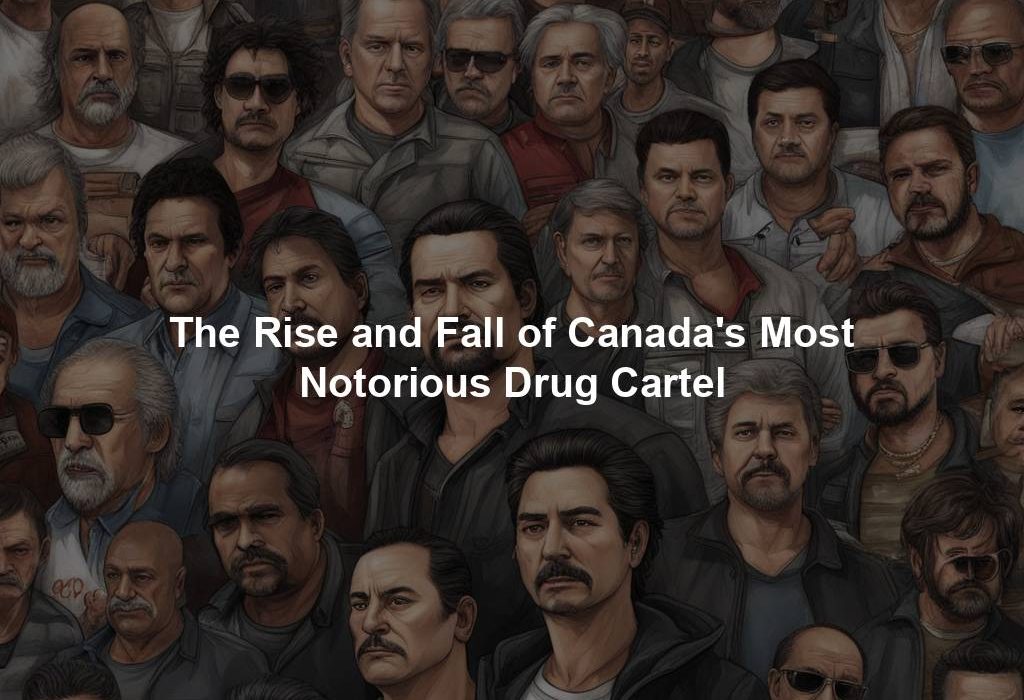In the realm of criminal enterprises, few groups have evoked as much dread and curiosity as Canada’s most notorious drug syndicate, the UN Gang. Revered for their ruthless practices and expansive criminal domain, the ascension and descent of this formidable organization encapsulate a saga of avarice, brutality, and ultimately, ruin.
The inception of the UN Gang can be delineated back to the early 2000s when a young visionary named Clayton Roueche established the syndicate in the Vancouver proximity. Originating as a street faction, the UN Gang swiftly metamorphosed into a paramount player in the Canadian narcotics commerce, importing substantial quantities of substances such as cocaine and methamphetamine from Mexico and the United States.
During its zenith, the UN Gang purportedly held sway over approximately 80% of the drug exchange in British Columbia, amassing millions of dollars in proceeds annually. The syndicate’s influence transcended borders, fostering connections with illicit organizations in diverse nations like the United States, Mexico, and Colombia.
The surge of the UN Gang to dominance was fueled by an amalgamation of factors, including the guidance of Roueche, renowned for his pitiless methodologies and capacity to cow adversaries. The enterprise further thrived due to Canada’s lenient law enforcement milieu, enabling them to operate with relative immunity for an extended period.
However, as the UN Gang’s dominance burgeoned, so did the scrutiny of law enforcement agencies. In 2009, Roueche was apprehended by US officials and extradited to the United States to face allegations of drug trafficking. This heralded the onset of the end for the UN Gang, as other kingpins within the syndicate also fell under police scrutiny.
The plummet of the UN Gang was swift and merciless. Following Roueche’s apprehension, a multitude of syndicate members were detained and arraigned on an array of charges, encompassing drug trafficking, money laundering, and homicide. The once impregnable empire of the group began to disintegrate as pivotal figures were neutralized.
Presently, the UN Gang exists as a mere specter of its bygone prominence, with a plethora of its leaders incarcerated and its clout vastly waned. Nevertheless, the legacy of the syndicate endures in the guise of augmented law enforcement surveillance and a rekindled focus on combatting organized crime in Canada.
The rise and fall of the UN Gang epitomize a cautionary anecdote concerning the hazards of organized crime and the harrowing repercussions it can instigate on society. Though the syndicate may have once wielded considerable influence in the narcotics domain, its ultimate downfall acts as a poignant reminder that no criminal empire is impervious.
As Canadian authorities persevere in combating organized crime, the UN Gang stands as a poignant reminder of the necessity for vigilance and collaboration in thwarting the menace of drug trafficking and other illicit undertakings. Solely through unified efforts can we aspire to avert the emergence of another entity akin to the UN Gang, proliferating havoc within our communities.
To conclude, the tragic arc of Canada’s most infamous drug syndicate, the UN Gang, stands as a somber warning regarding the perils of organized crime and the dire consequences it posits on society. From its modest origins as a street gang to its eventual demise at the hands of law enforcement, the UN Gang’s narrative underscores the imperative need for unrelenting vigilance in the battle against organized crime. As Canadians grapple with the enduring legacy of the UN Gang, one realization emerges starkly – the crusade against organized crime is an ongoing struggle.




